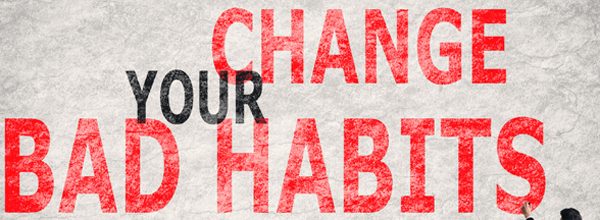Seven Ways To Spring Clean Your Hospitality Business, Step #2

12 DAILY HABITS OF SUPER-SUCCESSFUL HOSPITALITY ENTREPRENEURS
For nearly 25 years I have wondered what makes some operators in hospitality more successful than others. Whether it’s a single site small hotel, a side-street café, a small group of pubs or a nationwide chain of restaurants, there are character traits and skills which are shared by the most successful.
There’s a saying that, “Success leaves clues” and the key factor that I believe separates the achievers that I’ve met from those who struggle (and I’ve worked with hundreds in this latter group also), is their adoption of daily habits. These habits are rarely gained at birth. Instead they are learned and adopted, then implemented ruthlessly each and every day. For some these habits are automatic and they’re but for most these are conscious actions which, applied over time, I can guarantee will have a massive impact and influence on ultimate success.
The habits listed below are reflections of my personal opinion and experience of working with and meeting some of the best operators in this industry. However, whilst they are comprehensive, they cannot be entirely complete and I would suggest you make note of lots more worthy character traits and habits whenever you see them. I will expand upon each of these 12 points in my book of the same name, but here’s a summary:
1. Start early
It sounds obvious, especially if you’re already an entrepreneur and reading this. However, follow the character traits and success secrets of the world’s wealthiest and very few of them (unless they’re a rock star on tour) get up late in the morning. Running, as well as owning, a restaurant or bar can mean late nights, but perhaps this is one of the many reasons why so few operators manage to control and grow their businesses. Delegation of the late night routine tasks is essential. Our motto is, “Control your business before it controls you” and unless essential controls and systems are in place to allow you to concentrate on working effectively and early, you’ll always be a slave to your business and it’s a downhill slope. Get the important things done early, recording all your essential creative ideas and implementing them, before all those distractions and operational interruptions.
2. Put marketing first
Promoting your business rather than just carrying on working in it, is now probably the most crucial element of success in the highly competitive hospitality sector. You know (hopefully) that you’re brilliant at what you do already, so start telling everyone about it! The customer has more choices than ever, so it’s more difficult to get heard above your competitors. However, there are also more marketing channels than ever before, with tried and tested ways of getting your message out like never before. Marketing is now do-able and measurable, so get out there before everyone else. It’s no longer just the secret skill of experts and expensive consultants. With automated campaigns and systems, efficient marketing can now be achieved quickly and daily.
3. Exercise
Whether running, walking, cycling or going down the gym, we all know exercise is just as good for the mind as for the muscles, heart and weight loss. Hospitality can be one of the most stressful careers, so the most successful people manage to control the effect it has on them by taking daily exercise, for increased blood flow, higher energy levels, relaxation and an immediate change of scenery as much as for the longer term health benefits.
4. Write a daily ‘To Do’ list
Business goals are almost without exception written down and reviewed and shared regularly with the entire staff team. However, to facilitate this, effective hospitality entrepreneurs have a daily ‘To do’ list of priorities, written down and re-written before the end of each day. This focuses the mind on what’s important and urgent, separating these ‘must dos’ from the ‘nice to do’ which are usually unimportant and not in the slightest bit urgent. Time on planning is time well spent and the most successful are ruthless about how they manage each minute of their time, their most precious and shrinking resource.
5. Keep a journal
Try recording what you do each day and match that to your ‘to do’ list. How are you succeeding as a parent, spouse or friend as well as an entrepreneur? Use this to work out what actions are taking you closer to your goals and to look back at as an essential reference guide. Similarly, get key members in your organisation to ask each day what they did well, what didn’t they do well and, most importantly, how can they do something better next time?
6. Random acts of hospitality and kindness
It’s catching. Even if it’s one good deed of recognition, private time or just making someone’s job easier each day, just because you’re no longer at the front of house or serving drinks and food to guests, doesn’t mean you have to lose the hospitality (‘H’)factor. You started in this business for a reason, so never underestimate how good you are at welcoming and looking after people, especially when they’re least expecting it. Lead by example if you want your staff team to be genuinely warm and hospitable to others.
7. Focus on what’s important
A ‘To do’ list is fine, but how easy is it to get distracted by ‘the thick of small things’, by customers, emails, phone calls, staff questions and issues that can be either ‘delegated or relegated’? Unless your staff team take them on and grow their experience in sharing these tasks, progress is elusive. Distractions can be anything from a small maintenance issue to a potentially huge business opportunity. Sure, great entrepreneurs can multi-task, but they also know their goals and focus with formidable single mindedness on one task at a time, on the most important and the biggest first, the obstacles that most would run away from or procrastinate over. They realise that a mix of instinct and well thought out preparation, combined with all-out effort and determination, can overcome almost any obstacle, which in turn will make a difference and a lasting, massive, improvement.
8. Eat well and eat regularly
Publicans and restaurateurs are amongst the unhealthiest business owners. Putting the customers first can take its toll on you. The most effective operators have regular meal times, usually with either their home family or their work family. Snacking and squeezing food in between shifts and meetings achieves little and is an invitation to all manner of health problems such as heart attacks, strokes and digestion troubles. Think of meal times as an opportunity to have either a working lunch or to check out the competition, always leaving time to eat a relaxed meal with potential partners, partners and family.
9. Get inspired and give inspiration to others
Whether it’s visiting a business just across the road, travelling to another city or country, reading a book or watching an insightful video, we all need constant inspiration in order to be positive, creative and inspirational to others around us. The top operators and industry leaders haven’t just eaten well abroad, they’ve gone out of their way to constantly learn, find out what others do well and don’t do well and improve themselves and, ultimately, massively improve their own chances of success. In this fast changing and constantly developing sector of hospitality, to stand still is to fall way behind.
10. Take responsibility
Understanding that you are ultimately 100% responsible for what happens in your business can be difficult. Whether it’s external factors such as the weather, politics or not having the right ‘internals’ such as people, suppliers, systems, buildings, location, equipment, strategies or customer relationships, ultimately these are all your responsibility and no one can be blamed for missing targets and making mistakes except, eventually, you. Yes, you are responsible and if you’re not careful, you are often the person who knows how to get it done and therefore will be prepared to get it done. But as time progresses and the real entrepreneur in you takes over, the actual running of the business is controlled, efficient, systemised and delegated, leaving you with a business that runs without you being there – the definition of a true business.
11. Set deadlines and get things finished
Ideas are easy, putting them into action and turning them into reality is not. Great entrepreneurs are great finishers, for many of the reasons already mentioned. They have bullet-proof belief, resilience and obsessive determination to get things finished once they’ve started on them. Whether it’s securing a new site, developing a new food concept or reaching new targets, they’ll get it finished and then move onto the next goal.
12. Knowing the numbers
Numbers, in the form of vital management figures, information and accounts, are viewed and acted upon on a daily basis. This includes daily sales figures, break-evens, wage percentages, key performance indicators (KPIs), margins, budgets and balances. The best hospitality entrepreneurs set up systems and procedures that enable them to see what’s working and what isn’t working so well, right across their businesses. Planning, monitoring and implementing is only possible with access to accurate figures, enabling key decisions to be made.
In summary, most or all of these habits can be accumulated, learned and implemented on an ongoing basis. But just remember that without adopting these habits, you’ll find success a lot slower to come by, if not completely elusive. Hospitality as a business is a blend of art and science, after all.
By Peter Austen, Business Planning and Operational Coach (www.innventive.co.uk) and Founder of Hospitality Entrepreneur (www.hospitalityentrepreneur.com)
© 2016 All rights reserved www.hospitalityentrepreneur.com



